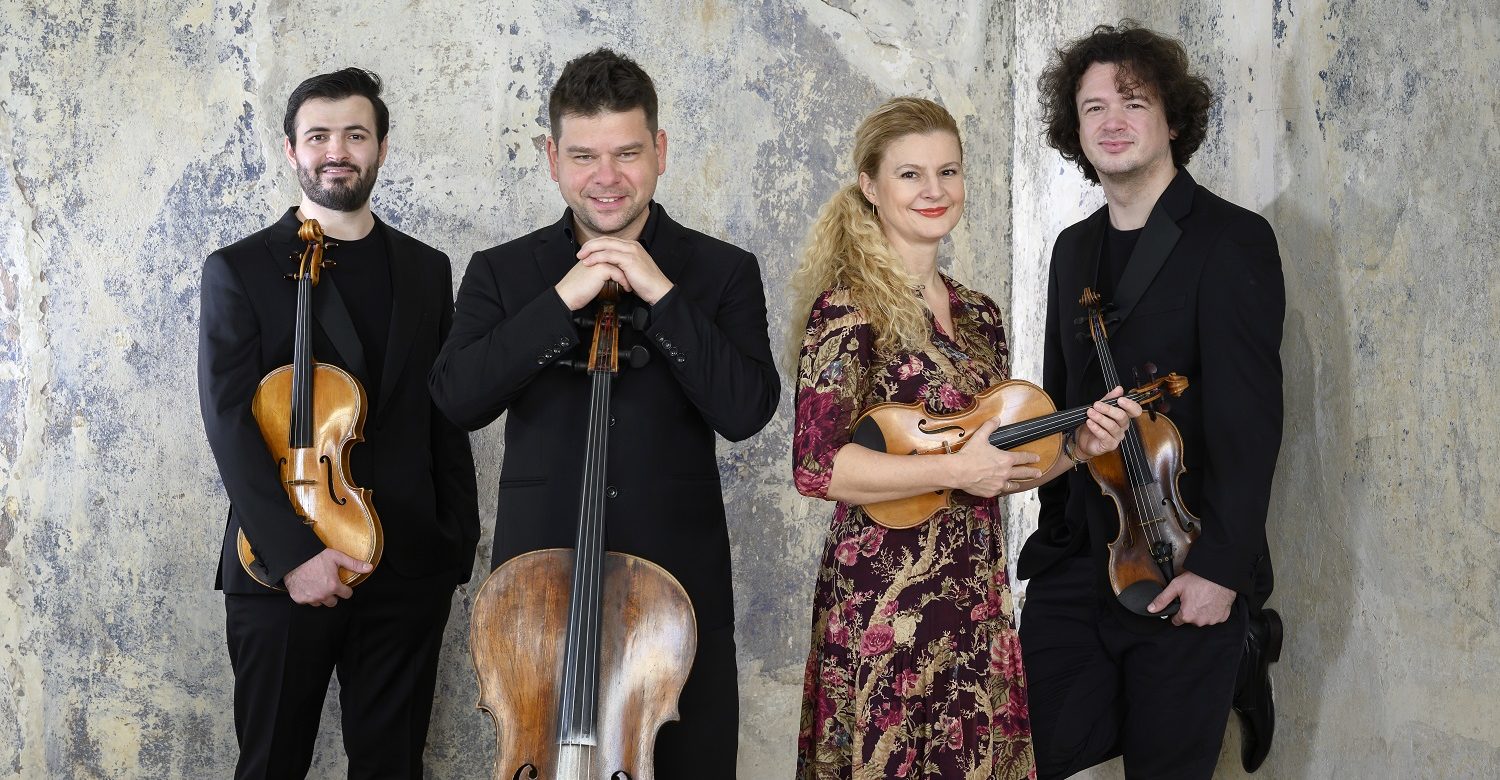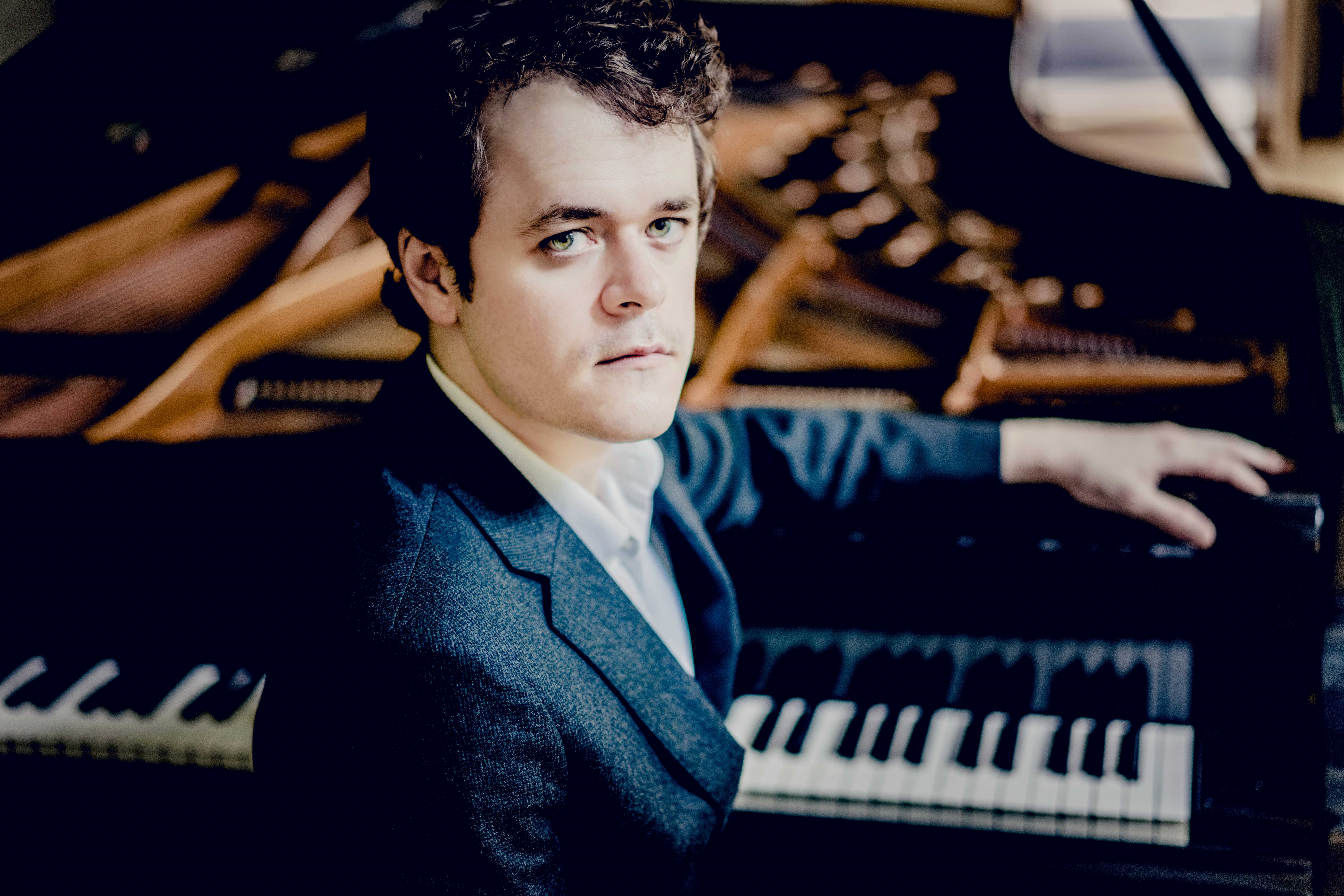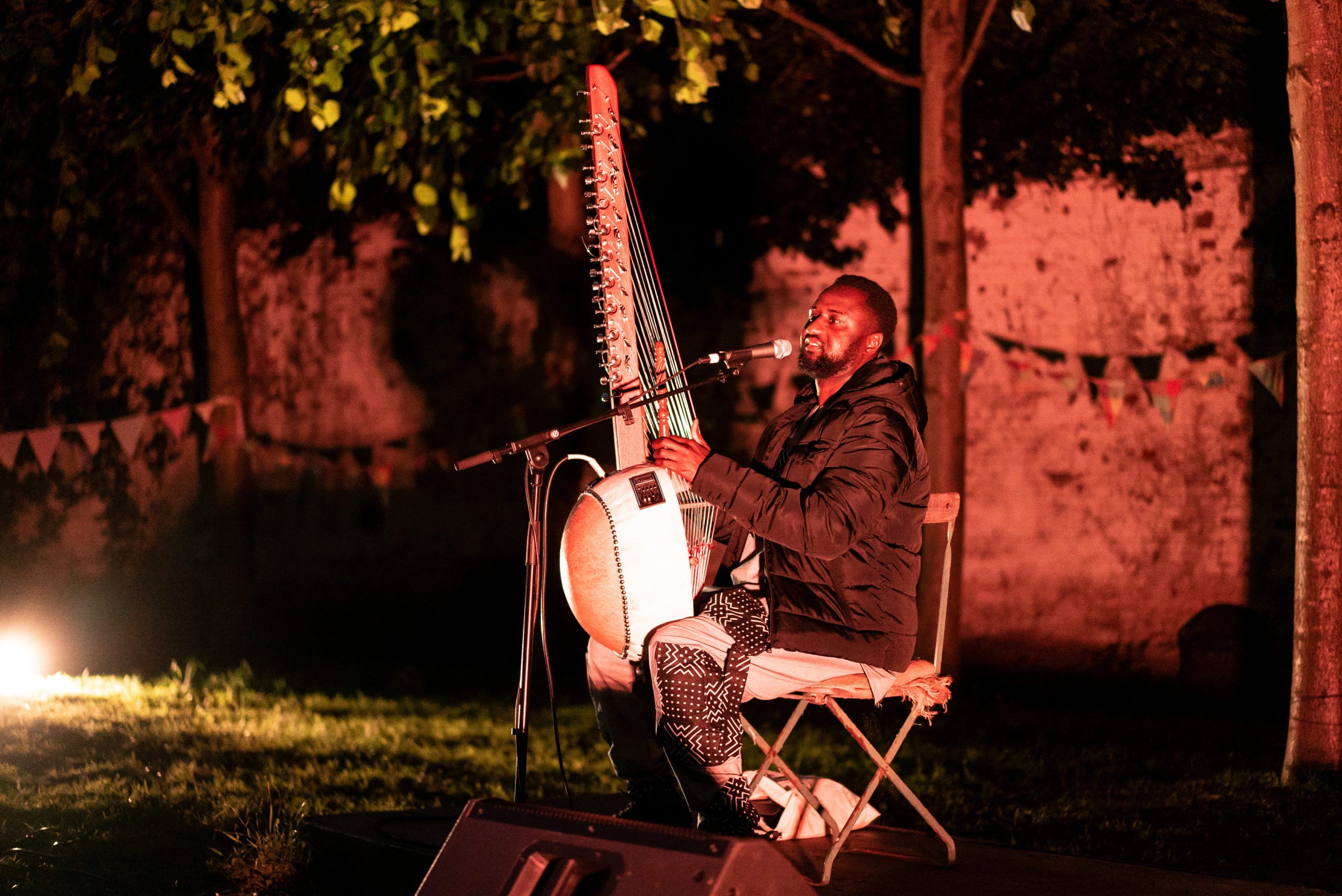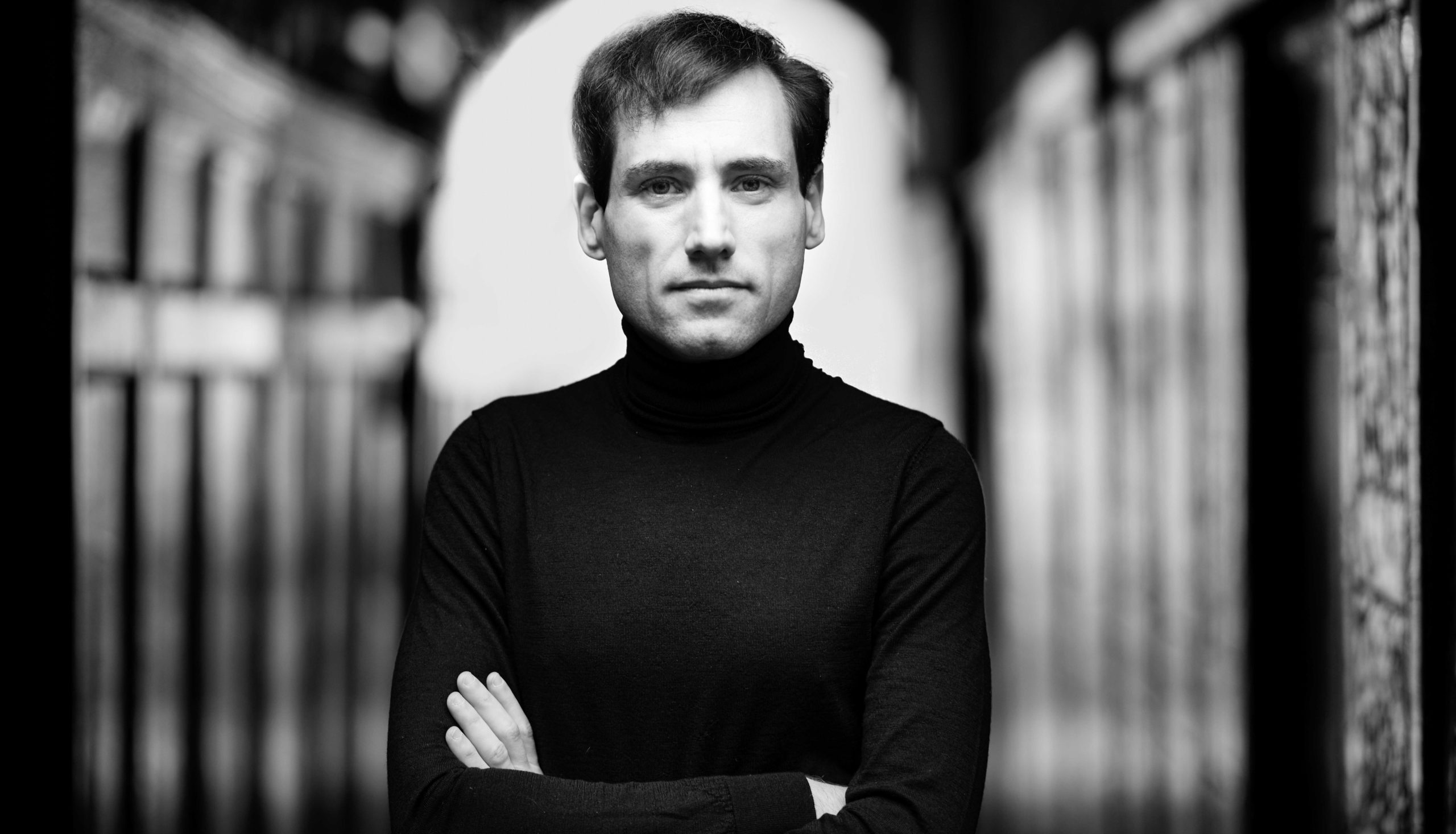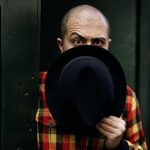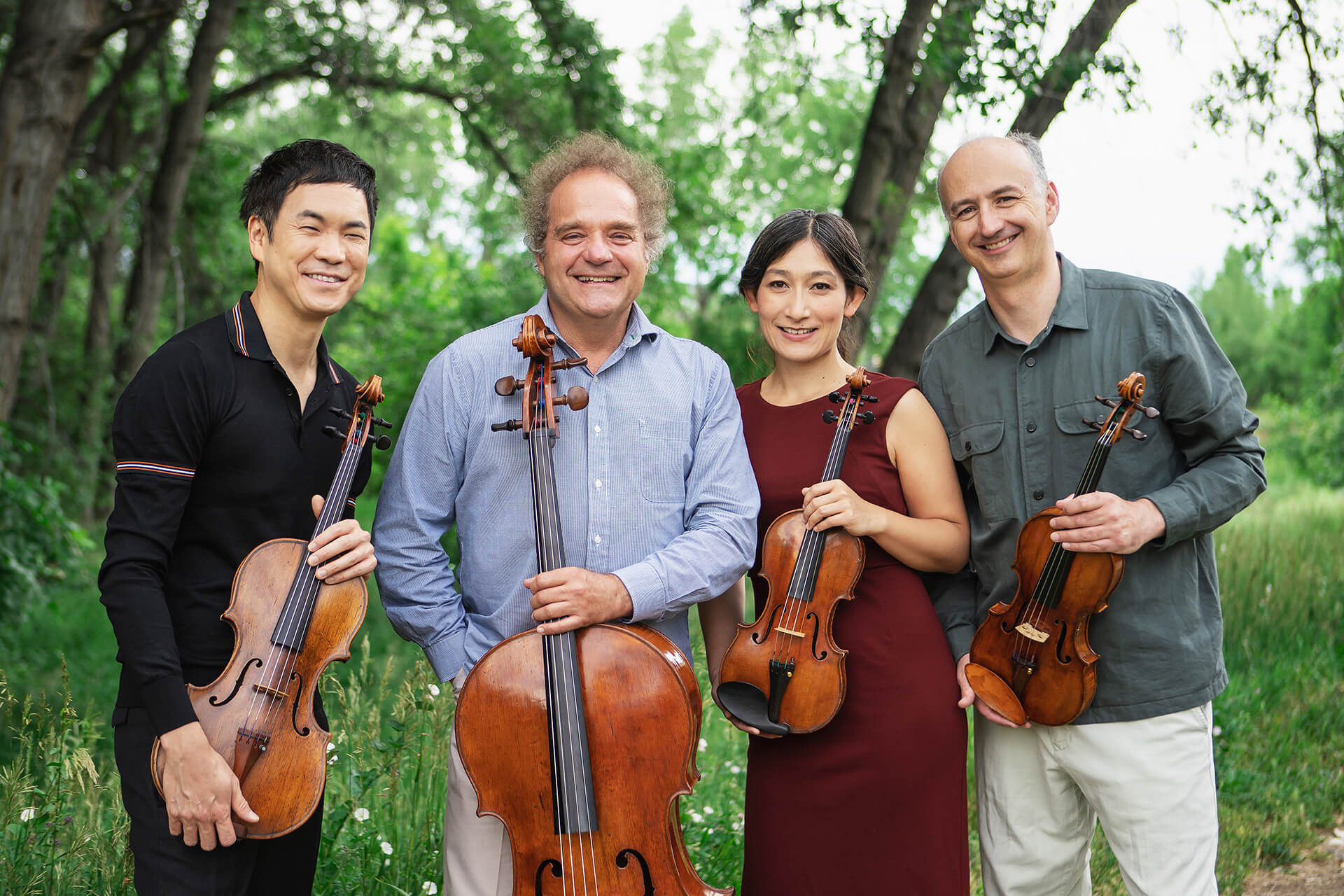
Meet Edward Dusinberre from Takacs Quartet
Edward Dusinberre (far right) is first violin in the Takacs Quartet. Now based in Colorado, Edward spent part of his childhood living in Cambridge. We asked him about growing up in a musical family, what he likes most about the music Takacs Quartet will perform on 10 November, and – the essential question – what TV shows he enjoys.
What’s your first musical memory? One of my first memories is of hearing my mother, an amateur violinist, practicing at home. A later but formative experience was the first time I performed at West Road – from the age of 11 I grew up in Cambridge. I played Ernest Bloch’s Nigun at a Chesterton Community College school concert, accompanied by the Head of Music at the time, Roger Bond. I was thrilled by the way the violin resonated in the wonderful acoustic and the sense of occasion that playing in such a hall created.
What instruments did you play as a child and what did you like/dislike about them? I started the violin when I was 4 and was always attracted to the sound. My mother did a great job of making those early practice sessions and game/ adventure, so I don’t remember any frustrations. I started piano when I was 6. That was more challenging for me – having to work out how to coordinate the right and left hands in that way. But that was also the attraction: being able to play both chords and melody.
Who has been the greatest musical influence on your life so far? I find it hard to choose one person. Since I have already mentioned my mother…perhaps her father, John Stainer. Early in life I heard him playing Beethoven and Schubert sonatas at home. His continued sense of discovery and wonder in the music he played has provided a wonderful model for me. We listened to many live BBC Radio 3 concerts together and he gave me my first concerto opportunities when I performed with the Ludlow Symphony Orchestra that he conducted.
How did you keep yourself busy during the pandemic-induced concert hall closures? The quartet was fortunately quite busy making videos for concert presenters, and cds for Hyperion Records. In Boulder, Colorado where we live, we kept busy teaching our students largely online but in person when regulations allowed. Harumi Rhodes, my partner in life as well as in the quartet, was a great (and tolerant) companion. We hiked a lot and had time to move house too!
What is your favourite music to perform and why? Whatever I happen to be working on at the time. Quartet players are so lucky with so much great music to play. As I write this, we have just performed Haydn’s Opus 20 no.5 and Janacek no.2, which we will play in Cambridge. Both pieces are their own compelling little universes – I feel completely absorbed in each when we are rehearsing or performing them.
What music do you enjoy listening to apart from classical? Ella Fitzgerald remains my favourite singer and I love the sound of the English brass band – the sort of music played by the Grimethorpe Colliery Band on the soundtrack for the wonderful film Brassed Off.
What do you especially like about the pieces you’re going to play at CMF 2021? First half already mentioned! The gratitude that Beethoven expresses in the slow movement of opus 132 after recovering from illness is hard won. The music seems both timeless and fragile -eventually shattered by the music that follows. Beethoven takes us by the scruff of the neck from the first bar of the piece, and when we emerge nearly 40 minutes later, it is with wonder at the range and juxtaposition of emotions we have experienced.
What’s your greatest skill outside music? I shy away from the word skill. Partly because I find it challenging, I enjoy writing non-fiction where I combine my own experiences as a quartet player with exploring the circumstances that surrounded the composition of the pieces we play. My book Beethoven for a Later Age: The Journey of a String Quartet came out in 2016.
I am close to completing another book about the relationship between home and music in my own life, using the music that I play by Elgar, Dvorák, Bartók and Britten to explore this theme. Dvorák, Bartók and Britten all spent time in the USA, aware of the different ways in which music can either alleviate or exacerbate the sense of distance from one’s homeland. Playing Elgar’s Piano Quintet has given me a chance to revisit early memories associated with his music and consider my relationship to England now that I have lived more than half of my life in Colorado.
What have you enjoyed watching on TV recently? I found Netflix’s drama about academia, The Chair disturbingly good, illuminating issues of inequality and prejudice, and featuring great performances by Sandra Oh and others. I loved David Tennant’s and Michael Sheen’s Staged. Behind the humour, a brilliant study of what it was like to be performing artists during the early stages of the pandemic.
You’re hosting a dinner for the other artists from this year’s CMF – what’s on the menu? This would be an intimidating assignment. I would suggest relocating to one of the several wonderful Indian restaurants in town!

